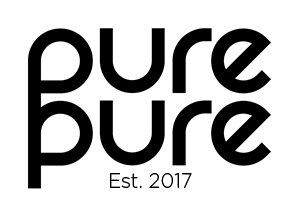
CBD for Athletes: What you need to know!
Athletes put a lot of stress on their bodies, to positive and negative effect. Training stress stimulates adaptation and increased performance, but physical trauma and prolonged wear and tear also lead to injuries and pain. Current methods of pain management are effective, but they’re also killing people. In search of improved sports recovery and safer pain relief, many people are asking about cannabidiol (CBD) for athletes. Should you? Chronic use of over-the-counter pain relievers (i.e. NSAIDs like ibuprofen and naproxen sodium) poses greater health risk than previously known. In such a landscape, athletes are rightly curious about and eager for CBD promises of pain relief and reduced inflammation without the risks associated with NSAIDs or opioids.
Is CBD legal for athletes? Yes. Starting at the beginning of 2018, the World Anti-Doping Agency (WADA) removed CBD from the list of prohibited substances – in or out of competition. (Here is the 2020 WADA Prohibited List.) There is an important caveat: ONLY CBD was removed from the prohibited list. The psychoactive component of marijuana, THC, is still prohibited in competition, as are synthetic cannabinoids. The specific wording is: “All natural and synthetic cannabinoids are prohibited, e.g.: In cannabis (hashish, marijuana) and cannabis products. Natural and synthetic tetrahydrocannabinols (THCs). Synthetic cannabinoids that mimic the effects of THC. Except: Cannabidiol.” Interestingly, WADA set a urinary threshold of 150 nanograms per milliliter for THC, which is substantially more lenient than the previous limit of 15 nanograms per milliliter. The higher threshold is designed to lower the risk of an athlete testing positive due to casual use outside of competition. The new threshold level is an attempt to ensure that in-competition use is detected and not use during the days and weeks before competition.
6 Benefits of CBD for Athletes:
- Relieve Pain Studies have shown cannabis (mostly THC and less CBD) is effective for reducing pain, including musculoskeletal pain from exercise, as well as stiff joints. There is little research on CBD alone or a 1:1 ratio of THC to CBD. This is an area where anecdotal evidence and biological plausibility are the best we have until research catches up. Despite the lack of hard evidence, CBD does appear to relieve pain effectively for many athletes.
- Alternative to NSAIDs Athletes have been consuming over-the-counter non-steroidal anti-inflammatory drugs (NSAIDs) like ibuprofen (Advil) or naproxen sodium (Aleve) for decades. Ultra-distance athletes, in particular, are typically advised to avoid NSAIDs during long training sessions and events, due to increased risk of renal damage. But even if your workouts and events are short, long-term or frequent use of NSAIDs may increase your risk for heart attack and stroke.
- Alternative to Opioids Opioid pain medications (i.e. morphine, codeine, oxycontin) are highly effective for pain management, but carry a significant risk of addiction and death by overdose. Cannabinoids are not as effective as opioids for relieving acute, high-intensity pain, but may be effective for long-term pain management – either alone or in conjunction with other medications – with far less risk of dependence or accidental death.
- Reduce inflammation A little bit of inflammation can be good for athletes and help stimulate positive training adaptations. Too much inflammation hinders recovery and hurts performance. There are CB2 receptors in both the brain and tissues of immune system. Cannabinoids binding to CB2 receptors may have an anti-inflammatory effect by reducing cytokine (cell messengers) production. In other words, CBD bound to CB2 receptors help dial down the response when your immune system sounds the alarm after hard workouts.
- Settle your gut Inflammation in the small and large intestines causes a lot of discomfort and GI distress is one of the leading reasons endurance athletes drop out of races. CBD won’t solve stomach problems from dehydration and overheating (two major causes for athletes), but if you have underlying inflammation issues that contribute to gut problems during or after exercise, CBD may be effective for reducing your symptoms.
- Improve Sleep Quality Getting more and better sleep is one of the most effective ways an athlete can achieve greater training gains. Athletes who consume CBD report greater ease going to sleep and a more restful sleep. One potential reason for this could be CBD inhibiting the re-uptake of adenosine. Adenosine triphosphate (ATP) breaks down as your brain burns carbohydrate for energy, and adenosine gradually accumulates in the brain. More adenosine binding to neurons inhibits the release of neurotransmitters, slowing down brain activity, helping you feel calmer, and inducing sleep. Your body metabolizes adenosine as you sleep, and some time later, low concentrations of adenosine help you wake up and the process starts again. By binding to same receptors adenosine would bind to, CBD may inhibit adenosine re-uptake, which helps it accumulate more quickly and makes you feel sleepy sooner. CBD may also have a potent anti-anxiety effect for some people, which can help them get to sleep and have more restful sleep.
In conclusion
Although it is not a banned substance for athletes in or out of competition, there is a potential risk for athletes that the product they buy doesn’t contain what it says on the label. If it actually contains a significant amount of THC or other prohibited substance, they are at risk for a doping violation.
That is why we offer a full transparency on our products and provide all the information so that you can make the right decisions.
Further, we created our Athlete line of products – Body & Mind CBD oil and PureLotion & PureBalm – which are THC free and do not represent any doping risks. You can consume our Athlete white line without any worries!





